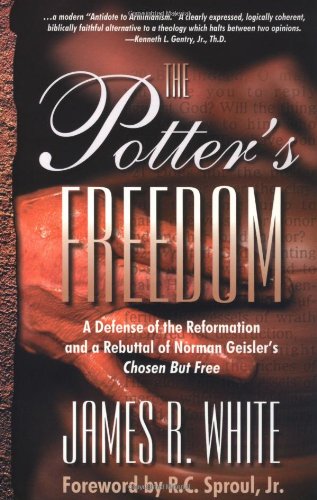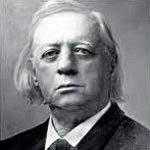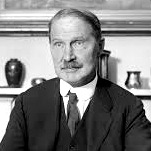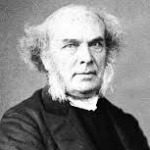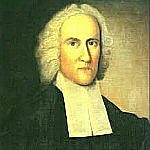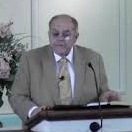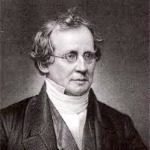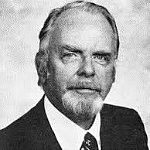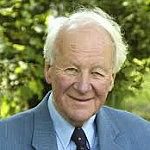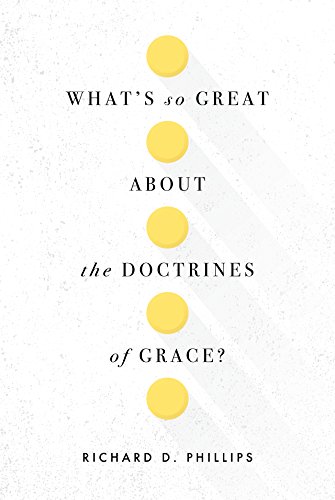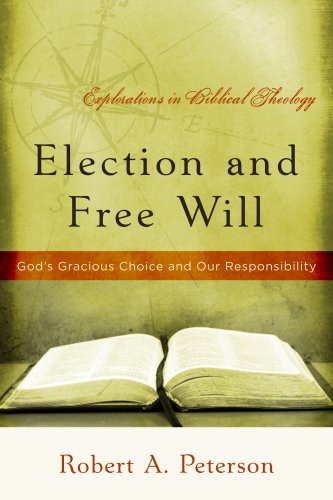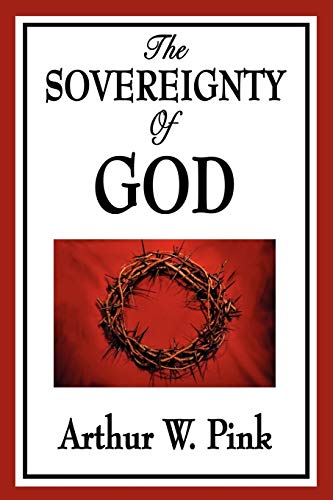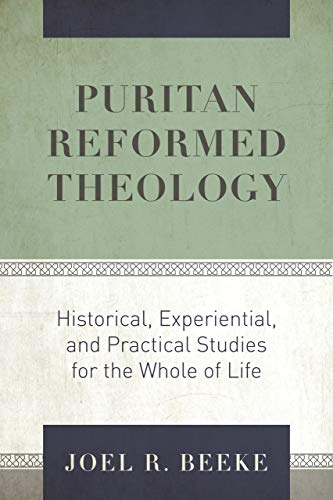Quotes about Salvation-Election
A man may be so bold of his predestination, that he forget his conversation.
A Puritan Golden Treasury, compiled by I.D.E. Thomas, by permission of Banner of Truth, Carlisle, PA. 2000, p. 88.
Thou didst seek us when we sought Thee not; didst seek us indeed that we might seek Thee.
God chooses us, not because we believe, but that we may believe.
I tell you again, God hath not ordinarily decreed the end without the means; and if you will neglect the means of salvation, it is a certain mark that God hath not decreed you to salvation. But you shall find that He hath left you no excuse, because He hath not thus predestinated you.
A Puritan Golden Treasury, compiled by I.D.E. Thomas, by permission of Banner of Truth, Carlisle, PA. 2000, p. 86-87.
God elects us in order to eliminate all boasting, all self-reliance, all human pride (1 Cor. 1:29-31; Eph. 1:3-11; 2:8-9).
Taken from “1 and 2 Thessalonians” by G.K. Beale, © 2003, InterVarsity Christian Fellowship/USA. Used with permission of InterVarsity Press, P.O. Box 1400, Downers Grove, IL 60515, p. 228. www.ivpress.com.
The elect are whosoever will, and the non-elect, whosoever won’t.
It is sometimes said that the doctrine of predestination exposes God to the charge of injustice. But this is hardly correct. We could speak of injustice only if man had a claim on God, and God owed man eternal salvation. But the situation is entirely different if all men have forfeited the blessings of God, as they have. No one has the right to call God to account for electing some and rejecting others. He would have been perfectly just, if He had not saved any, Matt. 20:14, 15; Rom. 9:14, 15.
Summary of Christian Doctrine, Part II: The Doctrine of God and Creation, Chapter VIII: The Divine Decrees.
If God actually stood powerless before the majesty of man’s lordly will, there would be but little use to pray for Him to convert any one. It would then be more reasonable for us to direct our petitions to the man himself.
The cause of any person believing is the will of God; and the outward sound of the Gospel strikes the ear but in vain until God is pleased to touch the heart within.
The Reformed Doctrine of Predestination, P&R Publishing, 1974, p. 359, Used by Permission.
A certain individual said to (Asahel Nettelton): “I cannot get along with the doctrine of election.” “Then,” said Nettleton, “get along without it. You are at liberty to get to heaven the easiest way you can. Whether the doctrine of election is true or not, it is true that you must repent, and believe, and love God. Now, what we tell you is, that such is the wickedness of your heart, that you never will do these things unless God has determined to renew your heart. If you do not believe that your heart is so wicked, make it manifest by complying with the terms of salvation. Why do you stand caviling with the doctrine of election? Suppose you should prove it to be false, what have you gained? You must repent and believe in Christ after all. Why do you not immediately comply with these terms of the gospel? When you have done this, without the aids of the divine grace, it will be soon enough to oppose the doctrine of election. Until you shall have done this, we shall still believe that the doctrine of election lies at the foundation of all hope in your case.”
You are perplexed by the doctrine of God’s sovereignty and election. I wonder that any man believing in a God should be perplexed by these. For if there be a God, a King, eternal, immortal, and invisible, He cannot but be sovereign – and He cannot but do according to His own will and choose according to His own purpose. You may dislike these doctrines, but you can only get quit of them by denying altogether the existence of an infinitely wise, glorious, and powerful Being. God would not be God were He not thus absolutely sovereign in His present doings and His eternal pre-arrangements.
There can be no grace when there is no sovereignty. Deny God’s right to choose whom He will and you deny His right to save whom He will. Deny His right to save whom He will and you deny that salvation is of grace. If salvation is made to hinge upon any merit or fitness in man, seen or foreseen, grace is at an end.
God chooses us, not because He foresees that we would choose Him, or that we would believe, but for the very opposite reason. He chooses us just because He foresees that we would neither choose Him nor believe of ourselves at all. Election proceeds not upon foreseen faith in us, but upon foreseen unbelief.
Our election is not written in particular in the word of God; but our duty is plainly set down there. If men conscientiously perform their duty, this is the way to come to the knowledge of their election. Men therefore should not question whether they be elected or not, but first believe on Christ, and endeavor diligently to work out their own salvation; and if their works be good, and their obedience true, thereby they will come to a certain knowledge that they were elected and set apart to everlasting life.
For no man is damned precisely because God hath not chosen him, because he is not elected, but because he is a sinner, and doth willfully refuse the means of grace offered.
A Puritan Golden Treasury, compiled by I.D.E. Thomas, by permission of Banner of Truth, Carlisle, PA. 2000, p. 88.
[The elect] are gathered into Christ’s flock by a call not immediately at birth, and not all at the same time, but according as it pleases God to dispense His grace to them. But before they are gathered unto that supreme Shepherd, they wander scattered in the wilderness common to all; and they do not differ at all from others except that they are protected by God’s special mercy from rushing headlong into the final ruin of death.
That is how the process of election always works. Those who remain outside God’s kingdom, who have not received His election and calling to become part of His people, do not lose something they sought to have but rather something they counted of no value. Noah does not have to fight to keep the masses out of the ark, as if it were the last lifeboat to leave a sinking ship. He does not have to stand by the gangplank with a shotgun, warding off the crowds. In fact, quite the reverse: only those whose hearts God has changed would want to take shelter within its confining walls.
Living in the Grip of Relentless Grace, P&R Publishing, 2002, p. 12. Used by Permission.
Those who are passed over by God will never complain that God is being unfair. Left to themselves, they have no desire to be chosen.
Living in the Grip of Relentless Grace, P&R Publishing, 2002, p. 12. Used by Permission.
From my childhood up, my mind had been full of objections against the doctrine of God’s sovereignty in choosing whom He would to eternal life, and rejecting him whom He pleased; leaving them eternally to perish, and be everlastingly tormented in Hell. It used to appear like a horrible doctrine to me. But I have often, since that first conviction, had quite another kind of sense of God’s sovereignty than I had then. I have often since had not only a conviction, but a delightful conviction. The doctrine has very often appeared exceeding pleasant, bright, and sweet. Absolute sovereignty is what I love to ascribe to God. But my first conviction was not so.
The conversion of a sinner being not owing to a man’s self determination, but to God’s determination, and eternal election, which is absolute, and depending on the sovereign Will of God, and not on the free will of man; as is evident from what has been said: and it being very evident from the Scriptures, that the eternal election of saints to the faith and holiness, is also an election of them to eternal salvation; hence their appointment to salvation must also be absolute, and not depending on their contingent, self-determining Will
Make God the peculiar object of your praises. The doctrine [of election] shows what great reason you have so to do. If God so values you, sets so much by you, has bestowed greater mercies upon you than on all the ungodly in the world, is it too little a requital for you to make God the peculiar object of your praise and thankfulness? If God so distinguishes you with His mercies, you ought to distinguish yourself in His praises. You should make it your great care and study how to glorify that God who has been so peculiarly merciful to you. And this, rather, because there was nothing peculiar in you differing from any other person that moved God thus to deal thus peculiarly by you: you were as unworthy to be set by as thousands of others that are not regarded of God, and are cast away by Him forever.
In one of his sermons, Spurgeon reminded his congregation about the doctrine of God’s electing some from the foundation of the world. But he noted that our task is to preach the gospel to every creature, not to find the elect. Spurgeon reportedly said that if God had painted a yellow strip down the back of each of the elect, he would run up and down the streets of London, lifting up shirttails, and preaching the gospel to the elect. But Spurgeon reminds us that God has not done so. Instead He has commanded us to “preach the gospel to every creature.” We must urgently appeal to everyone to come to Christ.
The Dangers of the Invitation System, Christian Communications Worldwide, www.CCWtoday.org, 1999, p. 23.
As a philosophical idea, God’s decreeing of a thing has dominance over His seeing a thing beforehand. Even though…the word foreknowledge is more than pre-sight, we nonetheless cannot disregard the verity that God sees all things beforehand. Thus God’s seeing all things has forever been a reality to Him, and God’s determining all things has also been forever. These two have had eternal origins. As long as He has decreed, He has known; and as long as He has known, He has decreed. So, in one sense, we cannot put one philosophical idea ahead of the other in terms of time. Yet we can put one above the other in terms of dominance. If God has seen and determined at the same time, we cannot make His decreeing subservient to His knowing. The reason one is preceding the other in terms of force (not time) is that determination is a willful act of God, whereas seeing is a passive act. God cannot help but see all, but He wills to decree. Therefore what He determines, He sees; and what He sees, is determined. The force of decreeing a thing dominates the seeing.
A Three-legged Stool: All Side of God’s Salvation Process, Christian Communicators Worldwide, www.CCWtoday.org. Used by Permission.
Now do not think that the belief of others in history establishes any doctrine… But it does help to say that we are not alone in our interpretation of Scripture, the Scripture being of “no private interpretation.” This is not a new doctrine – forgotten, yes – but not new. So I will start the list with Christ and Paul, Peter, John, and the others, and continue with these: Wycliffe, Tyndale, Coverdale, Ussher, Lightfoot, virtually all the King James Version translators, Beza, Brainard, Edwards, Whitefield, Carey, Fuller, Livingstone, Hudson Taylor, Adoniram Judson, Luther Rice, and China Inland Mission missionaries. Matthew Henry, Martin Luther, John Brown, Joseph Caryl, Thomas Chalmers, Alexander Maclaren, John Gill, Bishop Hall, Charles Hodge, Bishop Leighton, Thomas Manton, Thomas Goodwin, John Owen, G. Campbell Morgan, Matthew Poole, Bishop Reynolds, William Gurnall, J.C. Ryle, John Trapp, Robert Haldane, C.H. Spurgeon and Thomas Scott. We could add a host many others, including George Mueller, Martyn Lloyd-Jones, and several prominent authors and preachers of today, such as R. C. Sproul, John MacArthur, J. I. Packer, John Piper, Joni Eareckson Tada, etc. All of this listing is again just to say that a person who genuinely interprets Scripture as giving God supreme sovereignty over who is and who is not saved does not mean that he or she is in a freakish minority of irrelevant theologs.
A Three-legged Stool: All Side of God’s Salvation Process, Christian Communicators Worldwide, www.CCWtoday.org. Used by Permission.
The foreknowledge spoken of (in Romans 8:29) is foreknowledge of persons, not events. The statement reads, “whom He foreknew…” You see this as well in Romans 11:2, speaking of His endearment to Israel: “God did not reject His people whom He foreknew.” Therefore we can deduce that foreknowledge as related to salvation is not just seeing a person’s conversion experience prior to election and therefore electing on the basis of the individual’s choice. It is a foreloving of persons.
A Three-legged Stool: All Side of God’s Salvation Process, Christian Communicators Worldwide, www.CCWtoday.org. Used by Permission.
We have created on our understanding a big man and a small God: a strong and able man choosing his destiny and weak God who does not determine but simply waits on man. In fact, we have a very frustrated God. He wrings His hands waiting for capricious man to decide for Him. He begs a little – but not too much, for then He would overpower man’s will. He is sovereign, but sovereign over what? Certainly nothing to do with man’s will. The weather maybe. If salvation is determined by man’s believing alone, then God is not sovereign, but man is.
A Three-legged Stool: All Side of God’s Salvation Process, Christian Communicators Worldwide, www.CCWtoday.org. Used by Permission.
The pre-sight view of election makes God seem absurd in His language if not somewhat dishonest. You see, God has gone to great lengths to say that some are elected, chosen, foreordained, predestined as part of His eternal purpose. For God to say that He saw those that would choose Him and then He calls them elect (select from a number) is linguistic trickery. It is like the Queen decreeing that the sun will rise in the morning, as others have said. God’s words about His action toward man would mean nothing but could only be construed as a way of presenting an authoritative front that God is in charge, whereas the decisions of eternal life and death are really within man alone. Apply this to prophecy. Much of prophecy is presented to us as that which God determines to do in the future. Is this the truth of it? Did God prophesy that John the Baptist would be the forerunner of the Messiah (Isa. 40:3-5; Luke 3:3-6) on the basis of pre-sight, and then declare that it would happen? Doesn’t language lose all meaning to say that? Does it not make sense of the language to say that the action predicted was based on God’s determined plan and not just what He saw happening?
A Three-legged Stool: All Side of God’s Salvation Process, Christian Communicators Worldwide, www.CCWtoday.org. Used by Permission.
In the final place we should remember that the doctrine of election is principally for the good of those who hear. It says that sinners may be saved. It says that those without hope have hope in God’s love. Though fears may come when one considers the implications of being non-elect, it is most certainly a positive doctrine.
A Three-legged Stool: All Side of God’s Salvation Process, Christian Communicators Worldwide, www.CCWtoday.org. Used by Permission.
God is sovereign, but parents are responsible. God’s sovereignty is our hope. Parents are utterly dependent on God. He can save any child, no matter how dark the circumstances. On the other hand, God normally reaches children through their parents. It is fatal to presume on God’s sovereignty by neglecting parental faithfulness. Yet it is also a mistake to assume that it all depends on us. It doesn’t. In fact, none of your efforts will prevail unless God bestows the gift of faith on your children. We are utterly dependent and responsible at the same time.
Gospel-Powered Parenting, 2009, P&R Publishing, p. 22, Used by Permission. Get this book!
Here are eleven things expressly taught in the Word of God about election:
1. Election is “IN CHRIST.” No less than fourteen times in the first fourteen verses of Ephesians chapter one the Holy Spirit expressly tells us that every benefit and blessing of grace that comes to sinners from God is in Christ.
2. Election is UNTO SALVATION. Certainly, there is a sense in which it must be said that God’s elect were saved from eternity (Rom. 8:29); but we must never be deceived into thinking that election is salvation. Election is unto salvation. Election is not, as some teach, unto “Christian service.” Election is unto salvation.
3. Election is an act of pure, absolute, DIVINE SOVEREIGNTY. God has mercy on whom he will have mercy (Rom. 9:11-18). God was not moved by anything outside Himself to choose the people He chose to save.
4. Election took place in ETERNITY. God did not choose His people in time, but before time began, in eternity. He chose us before the foundation of the world, from the beginning, when nothing existed except God Himself in the tri-unity of the eternal Godhead.
5. The source and cause of election is God’s eternal LOVE for His people. He loved us freely, from everlasting, before ever the earth was made. Our love to Him is not the cause of His love toward us, but the result (Jer. 31:3; 1 Jn. 4:19).
6. God’s election was an act of free, UNCONDITIONAL grace. Grace is always free and unconditional. The moment a condition is put to it, it ceases to be grace. To say that God chose us because of something He foresaw in us, or foresaw we would chose to do, is to frustrate the grace of God, making it the reward of our work (Rom. 11:6).
7. Election is God’s PERSONAL choice of specific sinners to eternal life in Christ. Here is a sweet cordial of grace which shall never cease to amaze and rejoice the hearts of believing sinners – The Lord God chose me to eternal salvation in Christ, because He loved me with an everlasting, unconditional love!
8. Election is IRREVERSIBLE. “The gifts and callings of God are without repentance” (Rom. 11:29). Those who were chosen to salvation in eternity shall not be unchosen in time!
9. Election is EFFECTUAL. There is no possibility that one of God’s elect shall perish (2 Tim. 2:19).
10. Election is DISTINGUISHING. To talk of universal love in God toward reprobate men is to talk nonsense. Read Isaiah 43:1-4!
11. Election is BLESSED, for it is the cause of all blessedness (Ps. 65:4; Eph. 1:3-6).
So in the presentation of Scripture the cause of election lies in God, and the cause of reprobation lies in the sinner. Another important difference is that the ground of election is God’s grace, whereas the ground of reprobation is God’s justice.
Systematic Theology, Zondervan, 1994, p. 686. Used by Permission. Get this book!
None can know their election but by their conformity to Christ; for all who are chosen are chosen to sanctification.
The doctrines of grace humble a man without degrading him and exalt a man without inflating him.
We must never allow our subjective experience of choosing Christ water down the fact that we would not have chosen Him if He had not first chosen us. The doctrine of election presents us with a God who defies finite analysis. It is a doctrine which lets God be God.
Celebration of Election by Kent Hughes taken from Ephesians by Kent Hughes, copyright 1990, Crossway Books, a division of Good News Publishers, Wheaton Illinois 60187, www.crosswaybooks.org, p. 24.
I liken them to two ropes going through two holes in the ceiling and over a pulley above. If I wish to support myself by them, I must cling to them both. If I cling only to one and not the other, I go down. I read the many teachings of the Bible regarding God’s election, predestination, his chosen, and so on. I read also the many teachings regarding ‘whosoever will may come’ and urging people to exercise their responsibility as human beings. These seeming contradictions cannot be reconciled by the puny human mind. With childlike faith, I cling to both ropes, fully confident that in eternity I will see that both strands of truth are, after all, of one piece.
God’s saving electing love is not only not merited, we’ve earned just the opposite – God’s wrath.
The Story of Love by Michael Lawrence taken from Biblical Theology by Michael Lawrence, copyright 2010, Crossway Books, a division of Good News Publishers, Wheaton Illinois 60187, www.crosswaybooks.org. Page 149.
Although [Jonathan] Edwards had fought earlier against the biblical doctrine of divine sovereignty – a truth he once called a “horrible doctrine” – through personal study, he had become convinced that God irresistibly orders salvation of His chosen people, and he soon arose to be a guardian of this sacred truth.
The Unwavering Resolve of Jonathan Edwards (www.ligonier.org/store/the-unwavering-resolve-of-jonathan-edwards-hardcover), Copyright 2008 by Steven Lawson, Ligonier Ministries (www.ligonier.org). Page 10.
God’s sovereign election and man’s exercise of responsibility in choosing Jesus Christ seem opposite and irreconcilable truths – and from our limited perspective they are opposite and irreconcilable. That is why so many earnest, well-meaning Christians throughout the history of the church have floundered trying to reconcile them. Since the problem cannot be resolved by our finite minds, the result is always to compromise one truth in favor of the other or to weaken both by trying to take a position somewhere between them. We should let the antimony remain, believing both truths completely and leaving the harmonizing of them to God.
Someone has pictured the divine and human sides of salvation in this way: When you look toward heaven you begin to see a sign that reads, “Whosoever will may come,” and after you enter heaven you look back and see the same sign and read on the other side, “Chosen in Him before the foundation of the world.”
Faith is man’s response to God’s elective purpose. God’s choice of men is election; men’s choice of God is faith. In election God gives His promises, and by faith men receive them.
Don’t impose on God your sense of what is fair. Fair sends the whole human race to hell. You don’t want fair. God is God and He’s the sovereign of the universe and He doesn’t abandon His sovereignty at any point, particularly in the realm of redemption. I will have mercy on whom I have mercy. I will have compassion on whom I have compassion.
What Makes Jesus Rejoice – Part 3? The article originally appeared (https://www.gty.org/library/sermons-library/42-140/what-makes-jesus-rejoice-part-3) at www.gty.org. © 1969-2008. Grace to You. All rights reserved. Used by Permission.
Don’t let the doctrine of election get in the way. We don’t know who they are. Somebody said to Spurgeon, “You can’t preach that doctrine. You can’t preach that doctrine to everybody because they might not be elect.” And he said, “Well if you’ll go around and pull their shirt up so I can see if they have an ‘E’ stamped on their back, I’ll preach only to them.” I don’t know who they are and so we go to the ends of the earth because this is a secret decree known only after faith, not before. So I can with no hesitation cry out to all to come to Christ.
What Makes Jesus Rejoice – Part 3? The article originally appeared (https://www.gty.org/library/sermons-library/42-140/what-makes-jesus-rejoice-part-3) at www.gty.org. © 1969-2008. Grace to You. All rights reserved. Used by Permission.
Now if you have a problem matching up that sovereignty of God with human responsibility, admit that you don’t know everything and the problem is solved. Because I also know that the gospel extends to the end of the earth and Jesus was the one who said, “Come unto Me, all ye that labor and are heavy laden and I’ll give you rest.” We understand the gospel invitation. We understand the call. We understand the tears of Jesus over those who wouldn’t come. We understand the responsibility of the sinner who rejects the gospel and perishes and he is being punished for his own choice. We understand that. How that harmonizes with this doctrine, I do not understand. I may never understand it even in eternity because I will never be God. But I will let God be God and I will not redefine God on my terms… I also understand at the same time that God holds every sinner responsible for their own rejection and gives them the opportunity to receive Him. And it makes perfect sense to Him though it’s apparently paradoxical to me. But I will not err on the severe side of diminishing the sovereignty of God by eliminating this glorious truth.
What Makes Jesus Rejoice – Part 3? The article originally appeared (https://www.gty.org/library/sermons-library/42-140/what-makes-jesus-rejoice-part-3) at www.gty.org. © 1969-2008. Grace to You. All rights reserved. Used by Permission.
Reformed theologians say that God deems His own glory more important than saving everyone, and that (according to Romans 9) God’s glory is also furthered by the fact that some are not saved. Arminian theologians also say that something else is more important to God than the salvation of all people, namely, the preservation of man’s free will. So in a Reformed system God’s highest value is His own glory, and in an Arminian system God’s highest value is the free will of man (Wayne Grudem and Jeff Purswell).
Bible Doctrine: Essential Teachings of the Christian Faith, Zondervan, 1999, p. 291, www.zondervan.com.
To say that election took place before creation indicates that God’s choice was due to His own free decision and love, which were not dependent on temporal circumstances or human merit. The reasons for His election were rooted in the depths of His gracious, sovereign nature. To affirm this is to give to Christians the assurance that God’s purposes for them are of the highest good, and the appropriate response from those who are chosen in Christ from all eternity is to praise Him who has so richly blessed us (P.T. O’Brien).
The Letter to the Ephesians, Eerdmans, www.eerdmans.com, , www.zondervan.com, 1999, p. 100.
In considering the conflict between the sovereignty of God in election and the human responsibility, J.I. Packer writes: What is an antinomy? The Shorter Oxford Dictionary defines it as ‘”a contradiction between conclusions which seem equally logical, reasonable or necessary.” For our purposes, however, this definition is not quite accurate; the opening words should read “an appearance of contradiction.” For the whole point of an antinomy – in theology, at any rate – is that it is not a real contradiction, though it looks like one. It is an apparent incompatibility between two apparent truths. An antinomy exists when a pair of principles stand side by side, seemingly irreconcilable, yet both undeniable.
Evangelism and the Sovereignty of God, InterVarsity Press p. 18.
Get this book!
C.H. Spurgeon was once asked if he could reconcile these two truths to each other. “I wouldn’t try,” he replied; “I never reconcile friends.” Friends? – yes, friends.This is the point that we have to grasp. In the Bible, divine sovereignty and human responsibility are not enemies. They are not uneasy neighbors; they are not in an endless state of cold war with each other. They are friends, and they work together.
Evangelism and the Sovereignty of God, InterVarsity Press p. 35-36.
Get this book!
When the solemn and blessed subject of Divine foreordination is expounded, when God’s eternal choice of certain ones to be conformed to the image of His Son is set forth, the Enemy sends along some man to argue that election is based upon the foreknowledge of God, and this “foreknowledge” is interpreted to mean that God foresaw certain ones would be more pliable than others, that they would respond more readily to the strivings of the Spirit, and that because God knew they would believe, He, accordingly, predestinated them unto salvation. But such a statement is radically wrong. It repudiates the truth of total depravity, for it argues that there is something good in some men It takes away the independency of God, for it makes His decrees rest upon what He discovers in the creature It completely turns things upside down, for in saying God foresaw certain sinners would believe in Christ, and that because of this, He predestinated them unto salvation, is the very reverse of the truth. Scripture affirms that God, in His high sovereignty, singled out certain ones to be recipients of His distinguishing favors (Acts 13:48), and therefore He determined to bestow upon them the gift of faith. False theology makes God’s foreknowledge of our believing the cause of His election to salvation; whereas, God’s election is the cause, and our believing in Christ is the effect.
The Attributes of God, Baker Book House, p. 23.
Get this book!
God foreknows what will be because He has decreed what shall be. It is therefore a reversing of the order of Scripture, a putting of the cart before the horse, to affirm that God elects because He foreknows people. The truth is, He “foreknows” because He has elected. This removes the ground or cause of election from outside the creature, and places it in God’s own sovereign will.
The Attributes of God, Baker Book House, p. 26.
Get this book!
Like the doctrine of the Holy Trinity and the miraculous birth of our Savior, the truth of election must be received with simple, unquestioning faith.
Some of us, over the duration of our lives, have been shaken to the foundations by this truth of God’s sovereignty over man’s belief and unbelief. We have run from it, pretended it wasn’t there, argued against it, wept over it, and finally bowed our heads and hearts before it, and then discovered it to be one of the most deep and firm and precious foundation stones in the house of our fragile faith. We see now, with trembling joy, that without it we would not have believed, and we would not endure to the end and be saved.
How Shall People Be Saved? Part 2. Romans 10:13-21, August 31, 2003. www.DesiringGod.org. Used by Permission.
I affirm with John 3:16 and 1 Timothy 2:4 that God loves the world with a deep compassion that desires the salvation of all men. Yet I also affirm that God has chosen from before the foundation of the world whom He will save from sin. Since not all people are saved we must choose whether we believe (with the Arminians) that God’s will to save all people is restrained by His commitment to human self-determination or whether we believe (with the Calvinists) that God’s will to save all people is restrained by his commitment to the glorification of His sovereign grace (Ephesians 1:6,12,14; Romans 9:22-23). This decision should not be made on the basis of metaphysical assumptions about what we think human accountability requires. It should be made on the basis of what the Scriptures teach. I do not find in the Bible that human beings have the ultimate power of self-determination.
Election is best understood in hindsight, for it is only after coming to Christ that one can know for sure whether one has been chosen in Christ. Those who make a decision for Christ find that God made a decision for them in eternity past. It is like the words of the anonymous nineteenth-century hymn: I sought the Lord, and afterward I knew He moved my soul to seek Him, seeking me; it was not that I found, O Savior true; no, I was found of Thee.
Theologians sometimes speak of “double predestination,” which means that according to Gods decree, some sinners will never repent and thus finally will be lost in their sins. Strictly speaking, double predestination is not a biblical term, for the Bible nowhere speaks of anyone being predestined to hell. It reserves the verb “predestine” (proorizo) for the salvation of sinners unto eternal life. However, even if it is not a biblical term, double predestination expresses a biblical truth. If God has made an advance decision about which people He will save from their sins, He has also made an advance decision about which people He will leave in their sins (Romans 1:28). The theological term for this is “reprobation.” It means that when God established His plan of salvation, He decided to pass some sinners by.
Therefore, since salvation is a work of the Lord, I can draw these simple conclusions: First, I must share the Gospel with passion. Yet when it comes to conversion I need to leave the matter in God’s hands because that is a work that only He can accomplish. Second, my responsibility is not to save people, but rather my responsibility is to faithfully share the “good news.” Therefore, I don’t need to resort to gimmicks or manipulation, but rather prayer and trust in God’s sovereignty. It is not the skill of the proclaimer, the packaging of the message or the techniques used to proclaim it, but the unadulterated Word and trust in the Holy Spirit. We need clarity, not cleverness. Third, once I share the faith, I can be at peace regarding the eternal outcome of souls and am I thankful for that!
Sermon: A Successful Gospel-Centered Ministry – part 3, 2 Corinthians 4:1-6, May 3, 2014.
This is God allowing Himself to be God. This is God in His own freewill rightly exercising sovereignty over a creation that belongs exclusively to Him. This is saying God’s sovereignty tops man’s freewill. This is God in His mercy choosing to not allow the whole world to perish, but rather calling some to Himself entirely on the basis of His grace.
At no point in Scripture is the term “loved by God” applied to any person other than the saints. It is never applied to the world at large, where the reprobate would be included. On the latter the “wrath of God” abides, while on the former “there is no condemnation.” Only the Elect are the specific objects of the love of God.
So often when we struggle with the doctrine of predestination and election it is because our eyes are always fixed on the difficulty of resolving predestination with human freedom. The Bible, however, links them with salvation, which every Christian should find enormously comforting. Salvation is not an afterthought of God. The redemption of His people, the salvation of His church, my eternal salvation, these actions are not a postscript to the Divine activity. Instead, from the very foundation of the world, God had a sovereign plan to save a significant portion of the human race, and He moves heaven and earth to bring it to pass.
The Purpose of God, An Exposition of Ephesians, Christian Focus Publications, 1994, p. 23.
The reason for election is not my foreseen righteousness; or my foreseen obedience; or my foreseen response to the gospel…the only reason to be found in Scripture that explains why God elects people for salvation… that God has done this in accordance with His pleasure and will (Ephesians 1:5).
The Purpose of God, An Exposition of Ephesians, Christian Focus Publications, 1994, p. 24.
We give our hand to every man that loves the Lord Jesus Christ, be he what he may or who he may. The doctrine of election, like the great act of election itself, is intended to divide, not between Israel and Israel, but between Israel and the Egyptians, not between saint and saint, but between saints and children of the world. A man may be evidently of God’s chosen family, and yet though elected, may not believe in the doctrine of election. I hold that there are many savingly called, who do not believe in effectual calling, and that there are a great many who persevere to the end, who do not believe the doctrine of final perseverance. We do hope the hearts of many are a great deal better than their heads. We do not set their fallacies down to any willful opposition to the truth as it is in Jesus but simply to an error in their judgments, which we pray God to correct. We hope that if they think us mistaken too, they will reciprocate the same Christian courtesy; and when we meet around the cross, we hope that we shall ever feel that we are one in Christ Jesus.
Our opponents say, “Salvation belongs to the free will of man; if not to man’s merit, yet at least to man’s will;” but we hold and teach that salvation from first to last, in every iota of it, belongs to the Most High God. It is God that chooses His people. He calls them by His grace; He quickens them by His Spirit, and keeps them by His power.
Some of you have never preached on election since you were ordained. “These things,” you say, “are offensive.” And so you would rather offend God than offend man. But you reply, “These things will not be practical.” I do think that the climax of all man’s blasphemy is centered in that utterance. Tell me that God put a thing in the Bible that I am not to preach! You are finding fault with my God. But you say, “It will be dangerous.” What! God’s truth dangerous? I should not like to stand in your shoes when you have to face your Maker on the Day of Judgment after such an utterance as that.
When I was coming to Christ, I thought I was doing it all myself, and though I sought the Lord earnestly, I had no idea the Lord was seeking me. I do not think the young convert is at first aware of this… One week-night, … the thought struck me, "How did you come to be a Christian?" I sought the Lord. "But how did you come to seek the Lord?" The truth flashed across my mind in a moment – I should not have sought Him unless there had been some previous influence in my mind to make me seek Him. I prayed, thought I, but then I asked myself, How came I to pray? I was induced to pray by reading the Scriptures. How came I to read the Scriptures? I did read them, but what led me to do so? Then, in a moment, I saw that God was at the bottom of it all, and that He was the Author of my faith, and so the whole doctrine of grace opened up to me, and from that doctrine I have not departed to this day, and I desire to make this my constant confession, "I ascribe my change wholly to God"
From the Word of God I gather that damnation is all of man, from top to bottom, and salvation is all of grace, from first to last. He that perishes chooses to perish; but he that is saved is saved because God has chosen to save him.
But there are some who say, “It is hard for God to choose some and leave others.” Now, I will ask you one question. Is there any of you here this morning who wishes to be holy, who wishes to be regenerate, to leave off sin and walk in holiness? “Yes, there is,” says someone, “I do.” Then God has elected you. But another says, “No; I don’t want to be holy; I don’t want to give up my lusts and my vices.” Why should you grumble, then, that God has not elected you to it? For if you were elected you would not like it, according to your own confession. If God this morning had chosen you to holiness, you say you would not care for it. Do you not acknowledge that you prefer drunkenness to sobriety, dishonesty to honesty? You love this world’s pleasures better than religion; then why should you grumble that God has not chosen you to religion? If you love religion, He has chosen you to it. If you desire it, He has chosen you to it. If you do not, what right have you to say that God ought to have given you what you do not wish for?
There are two great truths which from this platform I have proclaimed for many years. The first is that salvation is free to every man who will have it; the second is that God gives salvation to a people whom He has chosen; and these truths are not in conflict with each other in the least degree.
If God would have painted a yellow stripe on the backs of the elect I would go around lifting shirts. But since He didn’t I must preach “whosoever will” and when “whatsoever” believes I know that he is one of the elect.
I believe that nothing happens apart from divine determination and decree. We shall never be able to escape from the doctrine of divine predestination – the doctrine that God has foreordained certain people unto eternal life.
How is it that some of us are converted, while our companions in sin are left to persevere in their godless career? Was there anything good in us that moved the heart of God to save us? God forbid that we should indulge the blasphemous thought!
Your damnation is your own election, not God’s.
I believe the man who is not willing to submit to the electing love and sovereign grace of God has great reason to question whether he is a Christian at all, for the spirit that kicks against that is the spirit of the unhumbled, unrenewed heart.
Whatever may be said about the doctrine of election, it is written in the Word of God as with an iron pen, and there is no getting rid of it. To me, it is one of the sweetest and most blessed truths in the whole of revelation, and those who are afraid of it are so because they do not understand it. If they could but know that the Lord had chosen them, it would make their hearts dance for joy.
Rebellion against divine election is often founded on the idea that the sinner has a sort of right to be saved, and this is to deny the full desert of sin.
I believe the doctrine of election, because I am quite certain that, if God had not chosen me, I should never have chosen Him; and I am sure He chose me before I was born, or else He never would have chosen me afterwards; and He must have elected me for reasons unknown to me, for I never could find any reason in myself why He should have looked upon me with special love.
It is a good thing God chose me before I was born, because he surely would not have afterwards.
Many people want to know their election before they look to Christ. But they cannot learn it thus; it is only to be discovered by “looking unto Jesus.” Look to Jesus, believe on Him, and you shall make proof of your election directly, for as surely as you believe, you are elect. If you will give yourself wholly up to Christ and trust Him, then you are one of God’s chosen ones. Go to Jesus just as you are. Go straight to Christ, hide in His wounds, and you shall know your election… Christ was at the everlasting council. He can tell you whether you were chosen or not, but you cannot find out in any other way. Go and put your trust in Him. There will be no doubt about His having chosen you, when you have chosen Him.
If it were Christ’s intention to save all men, how deplorably He has been disappointed!
I am persuaded that the doctrine of predestination is one of the “softest pillows” upon which the Christian can lay his head, and one of the “strongest staffs” upon which he may lean, in his pilgrimage along this rough road.
Although God is gracious in His eternal being, He need not be gracious or shower His grace upon anyone. If grace were at any time an obligation of God, it would cease to be grace. God’s grace, therefore, is distinguishing. He graciously saves some but not all, not based on anything present in the creature either possible or actual, foreseen or foreordained, but wholly according to His sovereign good pleasure.
Thus the Calvinist says that God elects unbelievers and predestines them to become believers. The Arminian, on the other hand, says that God elects believers and predestines them to become His children… The question…is this: Are faith and repentance produced by free will and thus the cause of election, or are they produced by the Holy Spirit and thus the effect of election? According to Arminianism, election is that act of God whereby He foreordains to eternal life those whom He foresees will respond in faith to the gospel. According to Calvinism, election is that act of God whereby He foreordains to eternal life those who, because of sin, cannot respond in faith to the gospel.
What is Election? November 6, 2006, www.enjoyinggodministries.com. Used by Permission.
Nothing is more effective [understanding divine election] in killing human pride and promoting godly humility and granting insight into the nature of God and inflaming the heart in worship.
Divine Election: How and Why Does God Choose? – Part I, November 6, 2006, www.enjoyinggodministries.com. Used by Permission.
If God did not want us to understand His sovereign saving purposes, He would not have given such extensive instruction in His Word. “Therefore,” says Calvin, “We must guard against depriving believers of anything disclosed about predestination in Scripture, lest we seem either wickedly to defraud them of the blessing of their God or to accuse and scoff at the Holy Spirit for having published what it is in any way profitable to suppress” (Institutes, III.21.3).
Divine Election: How and Why Does God Choose? – Part I, November 6, 2006, www.enjoyinggodministries.com. Used by Permission.
Those whom God chooses are chosen out from among all others. They who are chosen were in the same sinful condition, the same misery as the whole of the race. They were alike partakers of corruption, morally and spiritually destitute of anything good. They were, like all others, at enmity with God, serving Satan, deserving of death and condemnation, without righteousness. There is no distinction between elect and non-elect prior to the distinction that election makes.
Divine Election: How and Why Does God Choose? – Part II, November 6, 2006, www.enjoyinggodministries.com. Used by Permission.
[Jonathan] Edwards reminds us that God doesn’t choose men because He foresees excellence in them, but “He makes them excellent because He has chosen them.” Or again, “God doesn’t choose men and set His love upon them because they love Him, for He hath first loved us” (1 John 4:10). “Nor did God choose men because He foresaw that they would believe and come to Christ. Faith is the fruit of election and not the cause of it.” “Nor is it from any foresight of men’s endeavors after conversion, because He sees that some will do much more than others to obtain heaven, that He chooses.”
Divine Election: How and Why Does God Choose? – Part II, Edwards quotes from: Christians a Chosen Generation, 17:280, November 6, 2006, www.enjoyinggodministries.com. Used by Permission.
Here’s the rub: We simply don’t like the idea that the reason for God’s choices resides wholly within God. We want to account for His decision. We want to explain it, to rationalize it, to provide grounds and warrant for it. We want to be able to point to “factor A, or datum B, or issue C” in something other than God or preferably to “characteristic X, or virtue Y, or work Z” in us. We want to point to this quality or that personality trait or some accomplishment in one that isn’t in another as the grounds for God’s decision.
Divine Election: How and Why Does God Choose? – Part II, November 6, 2006, www.enjoyinggodministries.com. Used by Permission.
Some contend that we should believe in divine election reluctantly, wishing that it were otherwise than what we find in Scripture. They argue that we should speak of it with sadness and regret, and talk about it only when pushed or coerced to do so. But there is something seriously wrong when we fail to rejoice in what pleases God. There is a grievous flaw in our thinking and in our affections when we are reluctant to speak about what God spoke so often of in Scripture.
Divine Election: How and Why Does God Choose? – Part II, November 6, 2006, www.enjoyinggodministries.com. Used by Permission.
God did not sovereignly choose you so that the idea of Him choosing you might merely bounce around in your brain. He chose you for worship. The ultimate purpose of predestination is praise! You have been chosen for this goal: the proclamation of his excellencies and your extravagantly affectionate and inexpressibly joyful delight in them (cf. 1 Peter 1:8; 2:9).
Divine Election: How and Why Does God Choose? – Part II, November 6, 2006, www.enjoyinggodministries.com. Used by Permission.
Divine election is certainly one of the more profound and controversial doctrines in Holy Scripture. To some it is an idea conceived in hell, a tool of Satan wielded by him to thwart the evangelistic zeal of the church and thus responsible for populating hell with men and women who otherwise would have been reached with the gospel message. To others divine election is the heart and soul of Scripture, the most comforting and reassuring of biblical truths apart from which grace loses its power and God His glory. To the former, then, election is a primary reason why people are in hell. To the latter, it is the only reason why people are in heaven!
What is Election? November 6, 2006, www.enjoyinggodministries.com. Used by Permission.
No one who believes in the Bible disputes the fact that election is taught there. It isn’t the reality of election, or even its source, author, time, or goal that has elicited so much venom among professing Christians. It is rather the basis of divine election, that is to say, why and on what grounds some are elected to salvation and life and others are not. There are essentially only three options, the first of which is more pagan than Christian.
1. It has been argued that God elects those who are good. In this view, election is a debt God is obliged to pay, not a gift He graciously bestows. It is on the basis of inherent or self-generated righteousness that God elects men and women. This is the doctrine of Pelagianism, named after the British monk Pelagius who popularized the view in the fifth century. One would be hard-pressed to find an advocate of this perspective within the professing Christian church.
2. Others contend that God elects some who are bad who, notwithstanding their being bad, choose to exercise faith in Jesus Christ. It is on the basis of this foreseen faith that God elects them. This is the doctrine of Arminianism, named after the Dutch theologian James Arminius (1560-1609). It has also been called Wesleyanism because of the influence of John Wesley.
3. There is the view that God elects some who are bad who, because of their being bad, are not of themselves able to exercise faith in Christ. It is on the basis of His own sovereign good pleasure that God elects them. This is the doctrine of Calvinism, named after the French theologian John Calvin (1509-1564).
What is Election? November 6, 2006, www.enjoyinggodministries.com. Used by Permission.
By making election conditional upon something that man does, even if what he does is simply to repent and believe the gospel, God’s grace is seriously compromised. To say that something is done by grace is simply to say it is done by God. If salvation is from beginning to end a manifestation of God’s grace then it is from beginning to end a work of God. To inject any human effort or contribution whatsoever is to reject divine grace. Either election is unconditional and altogether of God and His grace or it is conditional and therefore a cooperative venture in which God and man both contribute.
Only the doctrine of unconditional election preserves the integrity of divine grace. According to the notion of conditional election, God graciously makes possible, but not certain, the election of all people by restoring to each that power and freedom of will of which they had been deprived by Adam’s fall into sin. Whether or not God elects any person is therefore dependent on the way in which he or she makes use of this ability. By establishing the condition for election as faith, God is thereby obligated to elect all those who, by means of their now purportedly free wills, believe in the gospel of Christ. But surely, then, election itself can be neither of grace nor according to God’s good pleasure. I suppose one might say that it was gracious of God to restore in all people sufficient ability to believe and that it was gracious of God to impose the condition of faith in Christ (by which one qualifies for election). But it is certainly not possible to say that election is itself gracious. To choose men because they believe is an obligation to which God is bound; it is a debt he must pay. If it would be unjust of God, having made faith the condition of election, not to elect those who believe, then election is a matter of giving man his due. Election would be the divine response to what a person deserves. He deserves being chosen because by a free act of will he has fulfilled the condition (faith) on which election was suspended… How can election be gracious if it is something God must do because justice requires it? Election is gracious precisely because it is the bestowal of life on those who deserve only death.
Evangelism…far from being rendered superfluous by God’s predestination, is indispensable, because it is the very means God has ordained by which His call comes to His people and awakens their faith.
Romans – God’s Good News for the World, 1994, InterVarsity Christian Fellowship. Used with permission of InterVarsity Press UK, p. 252.
Moreover, the topic of election is nearly always introduced for a practical purpose, in order to foster assurance (not presumption), holiness (not moral apathy). humility (not pride) and witness (not lazy selfishness)… Similarly in 1 Thessalonians 1:4 Paul unites the love of God and the election of God. That is, He chose us because He loves us, and He love us because He loves us. He does not love us because we are lovable, but only because He is love. And with that mystery we must be content.
The doctrine of predestination promotes humility, not arrogance; assurance, not apprehension; responsibility, not apathy; holiness, not complacency; and mission, not privilege.
Romans – God’s Good News for the World, 1994, InterVarsity Christian Fellowship. Used with permission of InterVarsity Press UK, p. 252.
Election and sovereignty are only sources of good. Election is not a decree to destroy. It is a decree to save. When we elect a president, we do not need to hold a second election to determine that the remaining millions shall be non-presidents.
As the Reformers put it, saving faith is the instrument by which we subjectively appropriate Christ’s objective, finished work. It is an opening of our empty hands to receive what God is offering. But we shall never give God all the glory for our salvation unless we remember that even the opening of our hands depends on what God has already done in the hiddennes of our hearts.
Salvation is from our side a choice; from the divine side it is a seizing upon, an apprehending, a conquest by the Most High God. Our “accepting” and “willing” are reactions rather than actions. The right of determination must always remain with God.
Predestination to life is the everlasting purpose of God, whereby before the foundations of the world were laid, He hath constantly decreed by His counsel secret to us, to deliver from curse and damnation those whom He hath chosen in Christ out of mankind, and to bring them by Christ to everlasting salvation, as vessels made to honor. Wherefore they which be imbued with so excellent a benefit of God be called according to God’s purpose by His Spirit, working in due season; they through grace obey the calling; they be justified freely; they be made sons of God by adoption; they be made like the image of his only-begotten Son Jesus Christ; they walk religiously in good works and at length by God’s mercy, they attain to everlasting felicity.
The idea of election goes back to Abraham (Gen. 12:1-3). God chose to make a nation of that patriarch’s descendants. He chose Israel to be his people. He worked his purposes out through that one nation and in due course sent his Messiah as a Jew. After that, God continued to choose, or elect, people in accordance with his purpose (Rom. 9:11), grace (Rom. 11:5), love (1 Thes. 1:4), and foreknowledge (1 Pet. 1:2). The “elect” can rely on God’s concern for them (Luke 18:7) and on their sure salvation (Rom. 8:33). They are to live lives befitting their status (Col. 3:12-14). Mystery is inherent in the concept of election, because we also know that God desires the salvation of all persons (1 Tim. 2:4).
This is the well-known decision of election and reprobation revealed in God’s Word. This decision the wicked, impure, and unstable distort to their own ruin, but it provides holy and godly souls with comfort beyond words.
The Canons of Dort, The First Main Point of Doctrine: Divine Election and Reprobation. Article 6- God’s Eternal Decision.
Recommended Books
